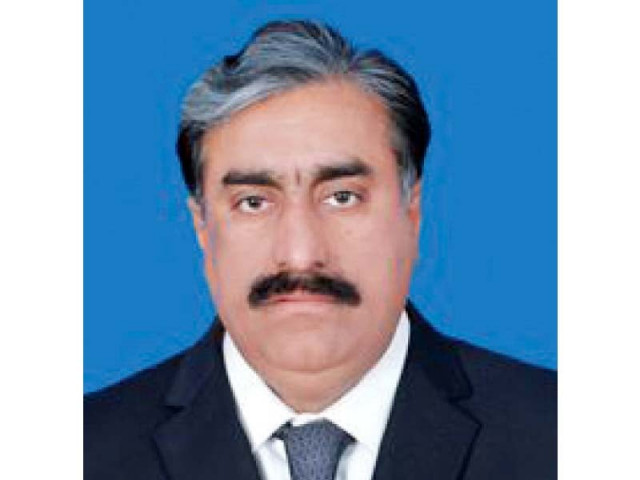Minority rights: Forced conversion bill to be moved in Sindh Assembly today
The bill, first of its kind in Pakistan, ensures right to religious freedom

The bill was tabled by PML-F lawmaker Nand Kumar. PHOTO: FILE
A private bill, Criminal Law (Protection of Minorities), was tabled by Pakistan Muslim League - Functional (PML-F) lawmaker Nand Kumar a year ago. It was referred to the standing committee for minority and human rights for feedback and has now been returned to the assembly. "The bill is on the agenda today," Kumar told The Express Tribune.
"All parties from the treasury and opposition have extended their support to the law. Sindh will be the first assembly in Pakistan to pass the law if my bill is taken up today."
The law will focus on recognising the right to freedom of religion of all persons, the right to freedom to marry and freedom of choice of marriage of all persons. "Forced conversion is an abhorrent and violent offence and an issue that has become prevalent across Sindh [that] must be eliminated by recognising the importance of tolerance, peace and respect for all religions and persons, irrespective of their religion," reads the bill.
After the law is passed, forced conversions will be criminalised and protection must be provided to victims.
"Every other day, reports pouring in suggest that minor girls belonging to non-Muslim communities are forced to change their religions," said Kumar. "This bill aims to end this inhumane practice."
He added that the bill is supported by the Constitution, which provides and protects the rights of all persons to choose and practise their own religion and the freedom of choice of marriage.
Age of conversion
According to the bill, no person shall be deemed to have changed their religion until they attain the age of maturity, which is 18 years. Similarly, the decision of a minor to convert to another religion will not be recognised until they reach the age of maturity.
Defining the punishments for forced conversion, the bill states that any person who forcibly converts another person shall be liable to imprisonment ranging from five years to life and a fine will have to be paid to the victim.
Whoever performs or facilitates a marriage while having knowledge that either one or both the parties are victims of forced conversion shall be liable to imprisonment for a minimum of three years or a fine to be paid to the victim or victims.
"This shall also include any persons who have provided logistical support or any other essential services for the marriage ceremony," states the law.
It adds that in a case of forced conversion, the accused shall also be liable for other offences, including kidnapping, abduction or compelling a woman for marriage.
Complaint mechanism
Regarding the mechanism of complaints, the law states that the victim, any person authorised by the victim or an informer may present a petition regarding the forced conversion in a local court. "The court shall fix the first date of hearing, which shall not exceed seven days from the date of the receipt of the petition by the court," said the law, adding that any case of forced conversion shall be disposed of in court within 90 days.
Shelter for victims
"The victim shall be given temporary [residence] in a shelter home of a service provider during the pendency of the trial," states the bill. It further adds that the court may exercise its discretion in the interest of security to withhold information of the location of shelter home.
"Any person who discloses the location of the victim in contravention of the orders of the court shall be liable to penalties as contempt of court as under the Contempt of Court Act, 1976," the law said. It added that the court will allow victims 21 days to make an independent decision regarding conversion to a new religion before initiating a case of forced conversion under this act.
Published in The Express Tribune, November 17th, 2016.


















COMMENTS
Comments are moderated and generally will be posted if they are on-topic and not abusive.
For more information, please see our Comments FAQ